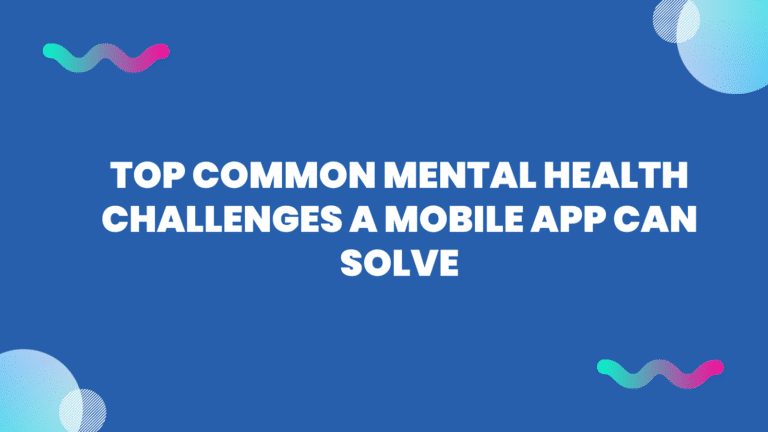A mind that’s active, involved, productive, grasper, and the giver. Sound sleep can be a minor thing for anybody but it can be a big affair for a few. A relaxed mind is a luxury not everyone has.
Good communication can be the key to opening complex mind locks. Of course, Loneliness can be struck by any emotional setback or loss. On-track thought processes and state of mind are some sensitive matters.
The best way to come out of it is to talk to a friend or your loved ones who are there for you.
And even if none of the physical support is available, your handy device, your cell phone, can play an important role and resolve many mental health issues with ease and in your comfort zone.
Your communication device, your cell phone can also be your handy pocket therapist.
What is mental health?
Mental health is the state of mind, and frame of thoughts that includes emotional and psychological well-being.
Our thinking process is the strength in handling emotional concerns. Taking care of mental health is very important in all stages of life. A happy mind leads a happy life.
Mobile apps for mental health are developed to help and reach the most vulnerable concerns people may have.
What are the mental health challenges?
There are several symptoms of which an individual can become the victim and these are some of the common symptoms of mental health conditions.
#1 Depression and Anxiety
The sudden change in the thinking process, feeling low and less energetic, having no interest in activities that earlier gave good vibes, loss of confidence, empty and lonely feelings diverting in mind.

#2 Post-traumatic stress
The uncertainties of life, some physical deformity, personal loss, professional loss, or life-changing events often lead to trauma.
#3 Bipolar disorder
Mood swings, such as periods of mania and high energy followed by periods of depression and low energy, can lead to bipolar disorder.
Signs of mania can include being overly happy or energized, while symptoms of depression can include sadness, hopelessness, and a lack of interest in activities.
Bipolar disorder is typically treated with medication and therapy. To create the best treatment plan for them, patients must work closely with their medical professionals.
#4 Obsessive-compulsive disorder (OCD):
Repetitive, unwanted thoughts, feelings, or sensations, known as obsessions, are what lead to OCD, a mental health condition that produces repetitive behaviors (compulsions).
As a result, a form of therapy called ERP therapy has been shown to be especially effective in helping people with OCD overcome their obsessions and compulsions.
#5 Schizophrenia
Schizophrenia is a serious mental illness characterized by psychotic symptoms like hallucinations and delusions.
Patients with schizophrenia may find it challenging to distinguish between what is real and what isn’t, which can make performing daily tasks challenging.
For instance, antipsychotic medication can aid in reducing psychotic symptoms. While therapy can help people develop coping skills and improve their ability to function in daily life.
How can mental health apps help patients to overcome their condition?

The mental health app development companies have been a major help in reaching patients online.
The advanced technology with constant updating and adding features make sure that the service is solving the purpose of giving online therapy to patients seeking mental help.
Similarly, healthcare professionals can treat patients using various tools such as telemedicine, and patient engagement software.
The lack of physical physiatrists and mental health specialties has made technology possible to reach the needful.
For instance, in remote areas where mental health facilities are low mobile apps have actively played an efficient role in improvising stressful conditions.
How does a Mental Health Mobile App work?
Usually, mental health apps are built for exercises that help a patient to overcome their symptoms.
But the telemedicine version of the mental health app includes various features that help them to access treatment that includes consultation with doctors, online chat, online therapy sessions, and so on.
As a result, the comfortable and user-friendly application interface and features are cautiously designed for easy use and consultation.
Text | Audio | Video messages
The app provides the option to communicate with the patient through all open mediums like a comfortable chat window, where you can clarify all queries or discuss the matter with the therapist smoothly. Also, video chat options are made available.
The audio can provide you with therapy session recordings or all-important points recorded in one place, which you can access when required.
24/7 online support
In urgent situations or in crucial circumstances availability of therapists is very essential. So this feature in the app makes sure that the patient gets online support. The app notifies the therapist about their attention even offline.
Online consultation and therapy sessions
The online sessions are the most important part of the therapy. To increase the patient’s confidence and give them strength to overcome their fears of issues and fight them back.
Spread positivity
The app sends everyday motivational messages to boost positivity, even if the app is in offline mode. To prevent mood swings or anxiety in the patient. To channel the mind frame of the user and engage in the right direction staying from negativity.
Track daily activities
Daily activities and goals are designed for the user to participate. The results are kept on track and the collection of data is collected for future analysis. The designed activities keep the user busy with constructive roles, thus helping the process of therapy.
Final words
Although, knowing your current mental health condition is important In order to take the necessary steps to prevent it. And do consult with healthcare professionals for proper guidance.



